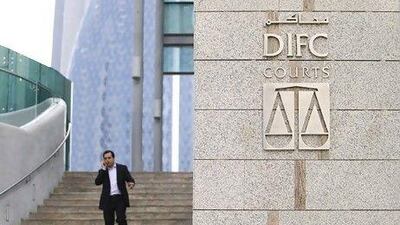There is one issue in Arabian Gulf legal circles that brings the region into disrepute on an almost routine basis - enforcement.
The rest of the world believes, with some justification, legal verdicts and rulings given in courts in jurisdictions outside the Middle East will not be enforced either in the region itself, nor against major parties based in the region.
Along with the culture of "wasta", or who you know, and the perception of casual corruption, the problem of enforcement regularly appears on any list of obstacles to making the region more competitive in the globalised economy.
Put bluntly, the international community does not unconditionally accept the impartiality of Middle East legal systems.
It is an issue everywhere - but especially so in Saudi Arabia. During the three-year battle between warring factions in the Al Gosaibi dispute, it has been taken as given, even written into evidence on several occasions, that international creditor banks have virtually no chance of getting back the US$15 billion (Dh55bn) or so they are said to be owed.
While legal actions continue to seek repayment, the actions of the banks tell how they view the realistic chances of recompense: most wrote off the full amounts in their balance sheets ages ago. It is a depressing theme for those trying to do business in the region, so it is good to be able to report that one legal centre at least is taking serious and strenuous steps to tackle the problem.
The Dubai International Financial Centre (DIFC) Courts has just completed an exhaustive study, under its new judicial clerk, Natasha Bakirci, of the current state of play in the enforcement controversy.
It is intended as a guide for legal practitioners to help them to know where they stand in relation to enforcement in the GCC, the broader Arab world and beyond, especially in the growth markets of Asia.
The guide also illustrates the progress made, at least in the UAE, on this thorny subject.
The DIFC Courts are generally regarded as the most efficient, impartial and modern legal apparatus in the region. Based on international best legal practice, with experienced judges and personnel with backgrounds in global jurisdictions, they are trusted by businesses and financial professionals as the best arena for the resolution of legal disputes as well as the enforcement of its decisions.
The issue is best understood in relation to three areas: the efficiency of enforcement of DIFC Courts judgements in Dubai, but outside the DIFC; in the UAE, but outside Dubai; and outside the UAE.
On the first, much progress has been made recently. Thanks to a new law last year, DIFC Courts' jurisdiction has been extended throughout the emirate.
This means parties at legal loggerheads can elect to have their case heard in the DIFC Courts and can be confident the eventual ruling will be accepted as binding as long as it is final and unappealable and has the status of an "execution law" as defined by the relevant protocols, and is translated into Arabic.
The Dubai courts will enforce these rulings as if they were their own. Importantly, judges cannot re-examine the merits of DIFC Courts' judgements.
In the second area, there has also been progress. Memorandums of understanding have been signed between DIFC Courts, the UAE federal Ministry of Justice, and other emirates (notably Ras Al Khaimah) to enforce DIFC judgements.
The structure needs to be further codified, but in practice the system is working well within the UAE: no DIFC Courts rulings have been challenged in Abu Dhabi or other emirates' courts.
The third area is the greyest. Enforcement is governed by a number of international treaties as well as bilateral legal deals between the UAE and countries such as France, India and China.
But other countries, for example Russia, will not recognise foreign judgements at all, while others such as Germany, Japan and some American states, require reciprocity, that is, the right to have their own rulings enforced in the UAE.
There is still much to be done to ensure trust in the region's legal systems but the DIFC Courts are the best hope for achieving this.

